Mailbag for March 1, 2024
Tabloid short memory, lunacy vs interrogating facts, a Royal PR suggestion, Maslow's Hierarchy of Needs for the celebrity ecosystem, CAMPAIGNING MATTERS, Byron Allen entertainment, and more
Dear Squawkers,
This was the week Princess Kate became Waldo.
Interestingly enough, it was also the week where there was a ruling in the UK about Prince Harry’s security request – a High Court judge rejected Harry’s request for security on his visits to the UK, but it was revealed among the documents released about the case that Harry’s legal team had submitted a letter from the New York City Police Department to the Metropolitan Police in London. The letter detailed the results of an investigation that was conducted after Harry and Meghan, along with her mother Doria Ragland, were chased by paparazzi in NYC last May after the Women of Vision event. You’ll recall, the Sussexes’ spokesperson described it as a “near catastrophic” incident at the time. And then were promptly accused of exaggerating when the British tabloids decided it was their duty to fact-check the claims, even though their relationship to the facts has never been all that stellar.
Nine months later, the NYPD investigation has made clear that the paps did indeed engage in “reckless disregard of vehicle and traffic laws and persistently dangerous and unacceptable behavior”, ultimately concluding that “we have sufficient evidence to arrest two individuals for reckless endangerment”.
But the confirmation that Harry and Meghan’s account of their experience was indeed true is definitely not making as much noise as when the situation was initially reported. Probably a small fraction of the people who engaged with the story back then have gotten the update. And, lol, the British media certainly isn’t going big on it. This is what makes me crazy about gossip sometimes: the follow-up, we never go hard enough on the fucking follow-up, and I say “we” here because I’m the media, these are my colleagues, my peers.
Anyway, to go back to Kate Waldo, I wonder, nine months from now, when presumably she’ll have been back on the circuit beside Prince William, waving on their walkabouts, what might emerge to clarify what we’ve seen – or haven’t seen – these past couple of months. And how that might change our perspective about how the British royals have handled this latest PR mess.
I posted about William and the latest round of shitty brand management that the British royal institution has performed recently this week, the first time I’ve written about them in a while. And this has prompted even more questions in the mailbag so that’s where we’ll start.
Question from Caitlin M: For the team writ large: for the stories (& associated Squawk threads) that blow up regarding the current situation with the royal family, is there a certain amount of reticence to post extensively about it because of all of the lunacy that comes with them? I could be completely projecting my own complicated feelings about the illnesses and whatnot, but it feels like there is an editorial concern about what those Squawk threads may devolve into when they’re posted. I mean, obviously we’re all classy geniuses with the best takes, but I’m sure you all have concerns about how those fringe opinions effect the Squawk vibe. Thanks!
Lainey’s Answer:
Inside baseball – Stephanie pitched a post on Wednesday about all the chaotic memes and Reddit threads that have been blowing up this week speculating as to Kate’s whereabouts and her condition. Sarah and I passed on it because while we’ve seen them, and yes, it’s been a huge pop culture story, but as editors of this website, we’re trying to project ahead to how any official commentary on this conversation, and even participating in it, will be reflect in the future. Will it age well? Will it not age well? LaineyGossip is not the group chat. LaineyGossip, as far as we’re concerned, is locked in, a living document of who we are in this moment, and while we OBVIOUSLY are NOT, like, the paper of record, it’s not a bad idea for anyone who runs a publication, be it online or not, to operate for themselves as if it was.
But this is what distinguishes, we hope, LaineyGossip from The Squawk – that The Squawk can be a sort of group chat where we can, within reason, freeball the gossip of the day or the week. And others can check you in a (hopefully) productive way, with nuance, without having it turn into a goddamn mess on Twitter.
There is, however, another consideration – you asked about “reticence” in writing about the royals over the last year, ever since the release of Prince Harry’s Spare… and it’s not so much reticence about the lunacy as it is a little boredom; but also, as I’ve said before, it’s always the same shit! Lies and clickbait and hysteria over nothingburgers and even if I say in the post that I think whatever latest drama is a nothingburger, it still amplifies the nothingburger. Sarah and I have become increasingly turned off by that kind of media.
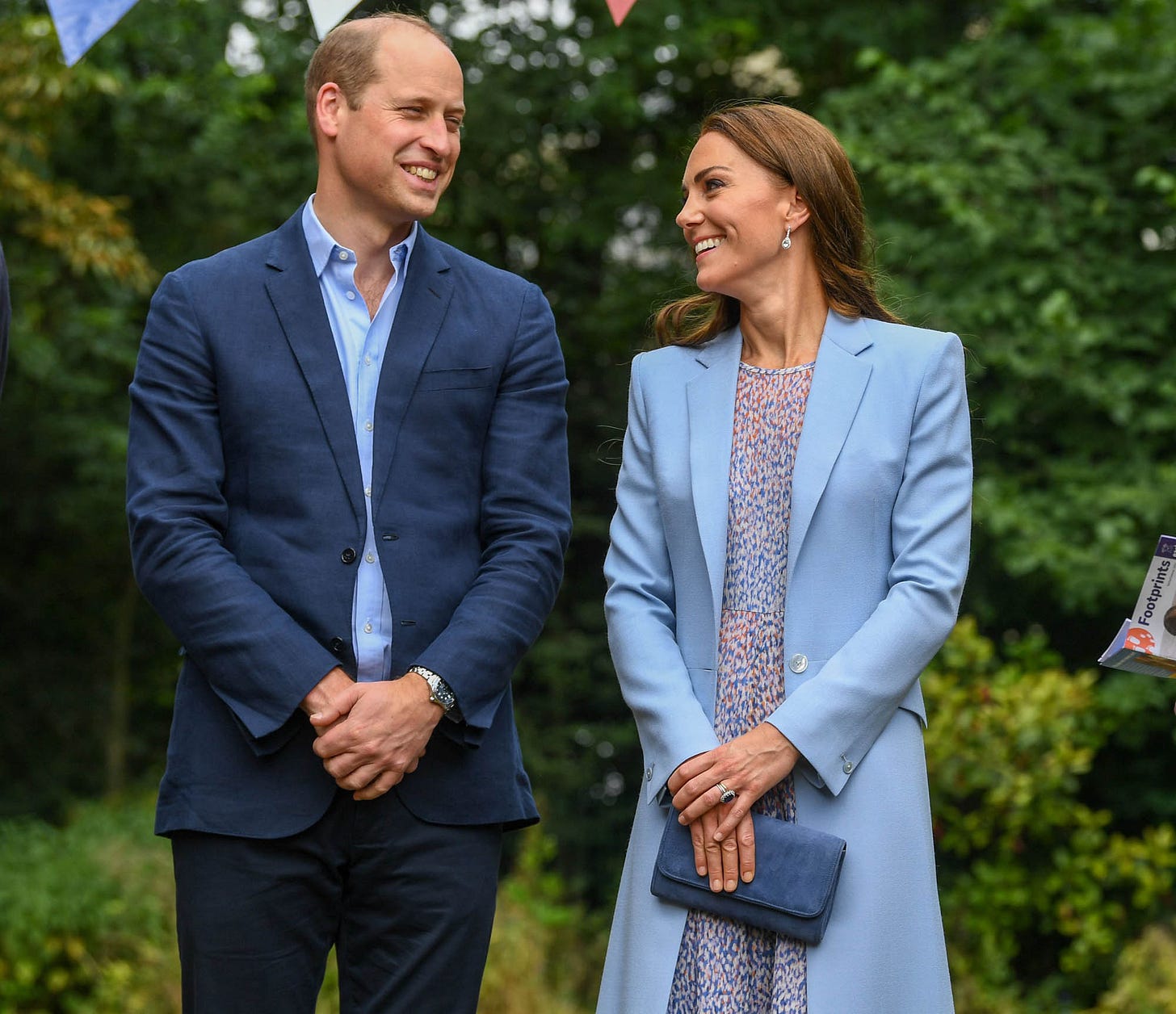
When King Charles and Kate both announced in the same week that they were going through their own individual health concerns, there wasn’t anything appropriate to add to it. Those were the facts, there’s nothing to analyse. Unlike when William bailed on the memorial service this week – because there are so many angles to explore here about succession and work and public relations and also the evolution or the resistance to evolution of the royal institution. That has been the overarching conversation through all of this for the last five years, ever since Harry and Meghan refused to follow their dusty ass playbook. This set into motion a cascade of events and corresponding reactions that have exposed the Firm’s inability to keep up and stay relevant and, frankly, get their shit together. The questions about William’s readiness and/or reluctance in this moment are 100% what we’re here to interrogate, that’s absolute what our work is, with any pop culture institution and its members.
Question from Virginia Guevara: Ok - so the royal family is a case study of how not to do PR. But what about cases of great PR - who are the magicians keeping careers afloat in spite of all the messiness? And to keep it somewhat royal family adjacent - are there any names that you think could right that ship? (Let’s pretend the players would be willing to follow instructions)
Lainey’s Answer:
Someone in the comments of this question suggested Omid Scobie which is the right answer and the wrong answer. Of course, Omid could do it, and he’d be great at it. And they’d be fucking lucky to have him because he’s been so astute in his assessment of the British royals and how and why they’ve found themselves in this conundrum, with no strategic vison whatsoever. But, like, don’t they need him more than he needs them?
I’m not just saying this because he’s my friend and I adore him, but at this point it’s not worth it for him, not professionally, not financially. They don’t pay much, so the compensatory reward isn’t there but there’s also no point in working for people who are clinging to their archaic customs and processes. They don’t seem to be willing to tear any of that down, and until that happens, what meaningful change can actually happen?
If you want another name though… I volunteer as tribute, LOLOL. Not really, but I do have suggestions. Short term suggestions because, again, these fucking people are not prepared for any actual progress, but in the short term, if I were them, I’d cut the shit with all these sharp statements in response to the social media frenzy because that’s not how you pivot in these times.
In these times, when Kate is well enough, release a photo of her next to a poster of Wonka or something Wonka related. Caption: “Oh you should never, never doubt what nobody is sure about”.
It’s that simple and it would break the internet, like an internet nuclear event.
They would NEVER. But they should. That’s the fucking pivot.
Question from Rebekah: Ok! If we're doing a gossip curriculum, I would love to see a Maslow's Hierarchy of Needs for the celebrity ecosystem. Who does it best? Celeb, inner circle, (assistant, publicist), legal team, handlers, security etc. And what happens when there is no publicist, who talks to whom? Does Jolie, for instance, arrange things personally? Is she the one fielding the pre-interview q's? Does she have people for that? And HOW ON EARTH does the monarchy not have this figured out. It really shows you that the sheer volume of people and/or resources is nothing if the ear piece to the celeb/royal is faulty. I don't know if there is a question here or merely commentary, but if something here inspires you for a mailbag--yay!
Sarah’s answer:
I am only going to answer the celebrity portion of this because I have a strong opinion about the “team” that surrounds a celebrity, particularly actors. My opinion is based on two things: 1) hearing actors complain about how much money they spend on retainers, and 2) a good friend who is a business manager in Los Angeles with several celebrity clients.
Agents AND managers are an area of significant overlap, and my strong opinion is that an actor with half a brain doesn’t need both. Essentially, the standard retainers for an actor are: agent, lawyer, manager. The agent gets you the job, the lawyer negotiates the contract, the manager…gets you the job. You see the problem? Why both agents AND managers?! Well, if you’re just starting out, you might get a manager who helps you get an agent. Your manager can also help with brand deals and endorsements, work that typically falls outside an agent’s purview. Managers will defend themselves as providing more hands-on, individualized service to a smaller client roster than an agent, where you might be just one face among many.
To quote my friend—managers are for super ambitious people who have many irons in the fire, or the lazy who don’t want to mind their own business. If you’re somewhere in the middle, an agent might suffice. Managers, though, have less regulation and more latitude to operate on behalf of clients, often in a producorial role—agents will say this is a negative, but that’s the exact same shit they tried with writers and got sacked en masse over—which satisfies others. Leonardo DiCaprio, for instance, has a manager and no agent. It really depends on the individual, you have to look at your career, your goals and ambitions, and how much of your own career you want to manage. But it has always seemed dumb to me to pay two different people to do the same job.
As for publicists, again, if you have half a brain and a modicum of tact, this is also a waste of money. A production will often provide studio publicists during a press tour, otherwise, what do you need one for? At the top end of the scale, the Beyoncés and the Taylor Swifts, I get it, you’re not just an entertainer, you are an industry unto yourself, and a publicist can be a key player in the industry of you. But for the non-superstars? Andrew Garfield doesn’t have a publicist and he’s doing fine. You just have to ask yourself, “Can I manage this on my own, or is the 7% investment in a publicist going to be worth it?” In the case of not having one, an assistant can often be the front line of receiving press requests and scheduling interviews, etc. If you do have a manager, they can help with shaping interview questions and what not. I have had this conversation with publicists who swear they provide a valuable service, but it just depends on the individual’s personality. Some people want to delegate and not worry about these things day to day, they might have a full team of agent, manager, lawyer, publicist, assistant (and they probably keep only 10% of their paycheck). Others don’t want to be handled that much and might eliminate a couple positions out of that rota (and keep more of their money in their pocket).
It really comes down to the individual, but I do strongly believe many actors have too many retainers on their payroll. It’s just so ingrained to have all these people around them, they don’t think about the true necessity of it. But all you really need is a person who understands your ambitions to help guide your career, and a lawyer to prepare the contracts. Everything else is negotiable.
Question from Jen: I’m wondering - did Ryan let it leak that he will be performing at the Oscars in hopes that it will secure him some votes for Best Supporting Actor? I admit, this would sway me as a voter if I knew he was willing to bring this kenergy to a live show. It’s going to be a hugely anticipated moment, like Rachel-Ryan-Maroon 5-Best Kiss levels of award show amazingness. Would be amazing if it could be paired with a win for him!
Lainey’s Answer:
Ryan Gosling has known for a long time that he will not win the Oscar, Robert Downey Jr has that locked up. And Ryan seems to be totally fine with it, which has only added to his popularity. Basically, the opposite of Bradley Cooper this award season.
That’s pretty much my answer to your question but I selected it because of RDJ and something I read this week that I wanted to share because it’s about campaigning. We have written so much about Oscar campaigning and how much of it the nominees have been doing, even though few of them actively admit to doing it. But there are still people out there who don’t really believe that celebrities are out here on these streets hustling for votes or that the hustle matters. The Hollywood Reporter’s first “Brutally Honest Oscar Ballot”, an annual tradition for them, just proved it.
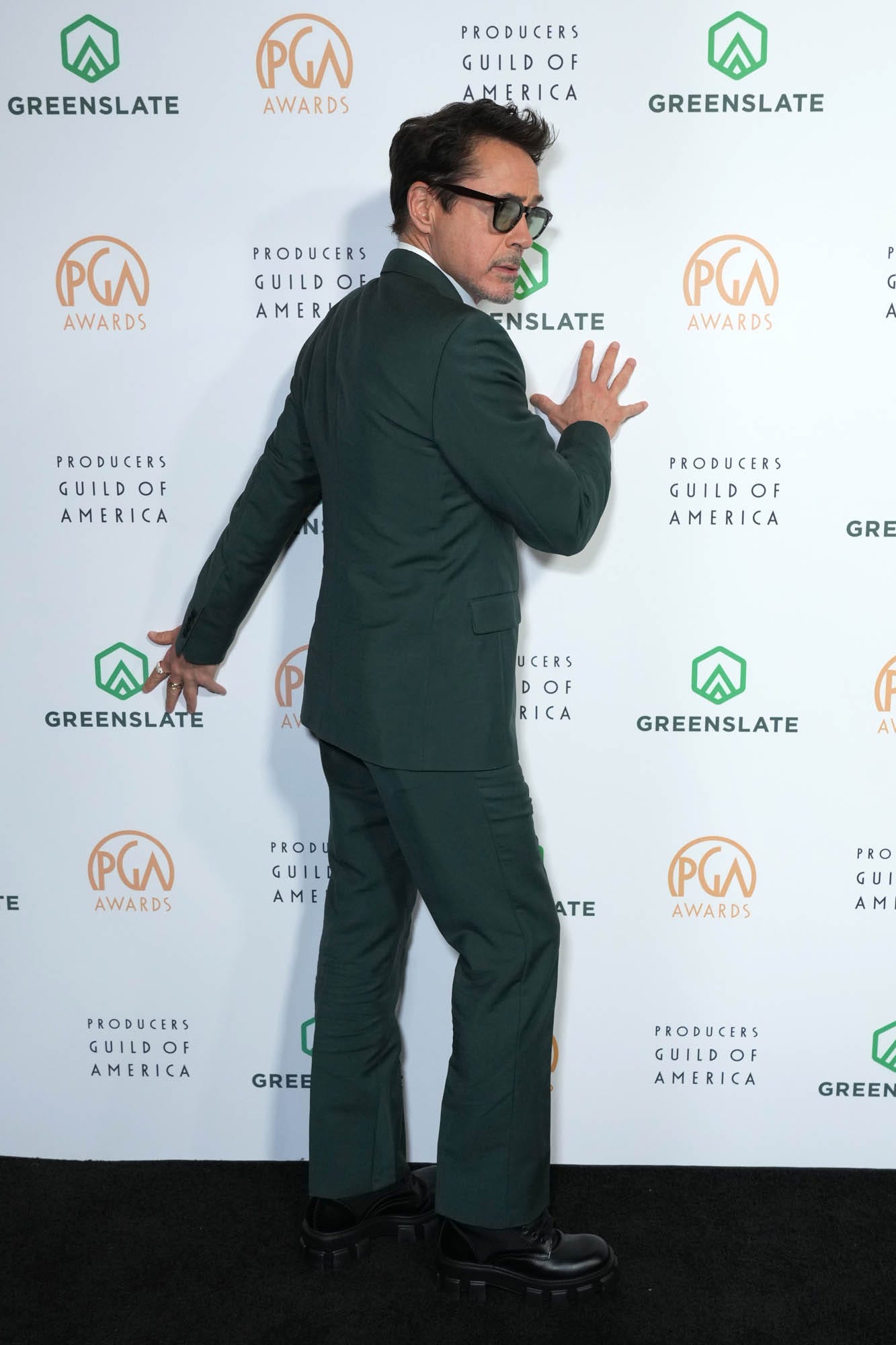
Here's how the voter explained why they voted for Robert Downey Jr for Best Supporting Actor:
“I was torn between [Poor Things’] Mark Ruffalo and [Oppenheimer’s] Robert Downey Jr., and even though it’s cheesy I’ll be real with you: I met Downey at an awards season party, we had an interaction that I did not initiate, and it tipped the scales for me. Campaigning matters! (Laughs.) What’s really great about him as an actor, in this film and so many others, is his ability to be believable all the time. I loved watching him turn as the story turned on Strauss.”
CAMPAIGNING MATTERS.
Question from Bentia: For Lainey and/or Sarah. Is Byron Allen quietly the most interesting player in Hollywood right now? I remember watching The Entertainers in the 90's where he basically turned his press junket interviews into a talk show. It cost him money and he nearly lost his house, still he eventually pivoted into producing and how his company, Entertainment Studios is valued at 4.5 billion dollars and he put in a legit offer to buy Paramount Studios. I hadn't thought about him in a long time until I heard a few years ago that he purchased The Weather Channel. If we like to talk about people who bet on themselves and won, it sure seems like he's a good case study.
Sarah’s answer:
Byron Allen is a great case study for self-made success in Hollywood. He was a teenage stand-up who got a boost from Jimmie Walker that got him on The Tonight Show with Johnny Carson, then he pivoted to hosting on air and, eventually, producing, which in turn grew into his current media empire. I would love to see him acquire Paramount, actually. It seems like most studios are run by people who actively hate film and the film industry these days, I would love to see someone who came up the ranks of performing and television end up in charge of a major studio (Bob Iger has that background, but he’s been on top so long I think he’s calcified in the big chair). At least Byron likes being in the entertainment industry!
If he does manage to acquire Paramount, we’d be in for numerous glossy profiles of him, and I would love to see how the mainstream industry press treats him, as to date he’s viewed as something of an outsider. He’s not really, but as a self-made Black man he is already not like the other studio bosses, but he also keeps a low profile for a power player. He’s old school like that. He’s not out here trying to be Mr. Popular like David Zaslav. I’m not convinced he really has the juice to obtain Paramount, he says he does, but his track record of offering for and actually closing deals with TV networks and studios isn’t good. We’ll have to see, but I hope it comes to pass, just because I want to see what Byron Allen does when he’s at the center of the film industry.
Question from Kate: Not gossip but perhaps this can get in on a Show Your Work angle...I recall Sarah writing once about her (non LG) work place tracking/tallying make work vs. work work. How did they approach the initiative? How did you track? What were the outcomes? I am fascinated by our current (at least US) hybrid work culture that is both somehow more efficient and less efficient, from my perspective, than ever!
Sarah’s answer:
An outside firm was brought in to conduct a productivity study post-lockdown, as my company, which is mid-sized, responded well to work from home. The outsiders provided total anonymity which allowed us to be honest about our experiences, which I think was key. Being able to say, “My office is right next to the most toxic employee in our company, and I don’t want to be there as a result,” without fear of reprisal makes a huge difference. It also allowed us to be honest about our work loads and how we structure our days—I could admit to shuffling papers on my desk just to look busy when waiting for someone else to complete a deliverable element in one of my projects. We tracked our work with a combination of key loggers and remote monitoring. We had to volunteer for it, because we wouldn’t know when someone was “watching” us work, and they were adamant we agree to being “observed” not “spied on”. I did shoot myself in the foot, though, because that deliverables issue meant I ended up with more responsibility—I spend less time waiting on other people but I’m also busier on a daily basis.
Two things came out of the study: a WFH/hybrid model—I go into the office once a month for a departmental meeting, but many people work fully remote, others choose to go in a few days a week—and we decided to make our summer hours permanent. We close at 3 PM on Fridays, it’s glorious. Between no commute and an earlier closing time, the weekend is that much longer, which has been very positive for everyone’s mental health and overall job satisfaction.
I think it took a real ego check from the upper management to step back and let outsiders tell them about their own employees’ dissatisfaction, and also massive credit to the top boss for being willing to adapt the suggested changes. I’m always inherently suspicious of management, but I think he does genuinely want us to enjoy our workday, even if our job isn’t our #1 passion in life. He at least doesn’t want us to hate being there. I also think hybrid and WFH models only work if you want them to work. Some people hate it, others thrive on it. Personally, I wasn’t the most social person in the office anyway, so I like working at home and the way it has changed the rhythm of my life. But I get it if it’s not for everyone.
As for efficiency, my team, which primarily works remotely, is 67% more productive now than we were in 2019. I am VERY smug about that fact whenever someone says WFH isn’t efficient.
Question from PJ: Curious about how you balance asking questions that could be on the more scandalous side. We see some land in a funny way that may go viral, sometimes they’re awkward and sometimes they just land terribly. Are there repercussions if a question is poorly received either by the interviewee or maybe the public? Most recent example I can think of is the reporter who asked Andrew Scott about Barry K’s “prosthetic” on a recent carpet.
Lainey’s Answer:
There can be immediate repercussions if a question is poorly received at a junket. When you’re on an official junket, the studio handles the footage – they provide the cameras and the way it works now is that a day or two later, they send you the raw digital file of the interview usually with three camera angles: the stars, you, and a two-shot of everyone. At a junket, then, if an interview goes sideways, in extreme cases, you could risk not getting the files. Or you might be told (it’s never a question, it’s an order) to not include the part in question. And there might be a complaint filed with your outlet. This is why, typically, people don’t fuck around as much on a junket in comparison to the red carpet.
On red carpets, outlets generally bring their own gear so there’s no danger of losing the footage because they can’t take it away. You still might get the sternly worded request to not air the issue in question, but they have less control since they aren’t operating the camera. That interview you’re talking about with Andrew Scott happened on the red carpet. And the reporter wasn’t a TikToker. I bring this up because one of the repercussions for a TikToker who goes offside can be that they’ll no longer be invited again. At the same time, a TikToker doesn’t have the pressure of needing to be invited again. So they can, if they want to, just say fuck it and go for it with their gay son or thot daughter questions. Reporters who work for more conventional outlets don’t have that luxury so they can’t really go rogue because they don’t want to take the chance that, in the future, they’ll be thrown out of a junket or off a carpet.
The person who asked Andrew that question was reporting for the BBC. It’s unlikely that the BBC is ever going to be thrown out of a junket or off a red carpet. That reporter is a veteran in the business, he’s been doing this for many, many years, and by his own admission, he made the wrong call. So it goes back to what I wrote last week in the mailbag and also this week in the newsletter about influencers joining the press pack. They are definitely disrupting our industry and those of us who’ve been here much longer do feel like our experience is being unvalued but that doesn’t mean we should get complacent and it definitely doesn’t mean can’t keep improving our skillset.
Thanks for another great week of gossip leading up to a HUGE week of gossip – countdown to the Oscars! We’ll be letting you know about our Oscar plans next week, probably on Tuesday, after we try to bank as much sleep as possible this weekend since next weekend will be balls to the wall. For those of you who are interested and want to get a sense of what my schedule will be for the Oscars, a press release was just sent out yesterday, you can read that here.
ETALK is doing something we have never done in our history this year for the Oscars: a live after-show! I am planning a Show Your Work piece on the experience for The Squawk in the days to come but for now, everybody get some rest! We are, finally, almost at the end of this long ass award season!
Yours in gossip,
Lainey and Sarah





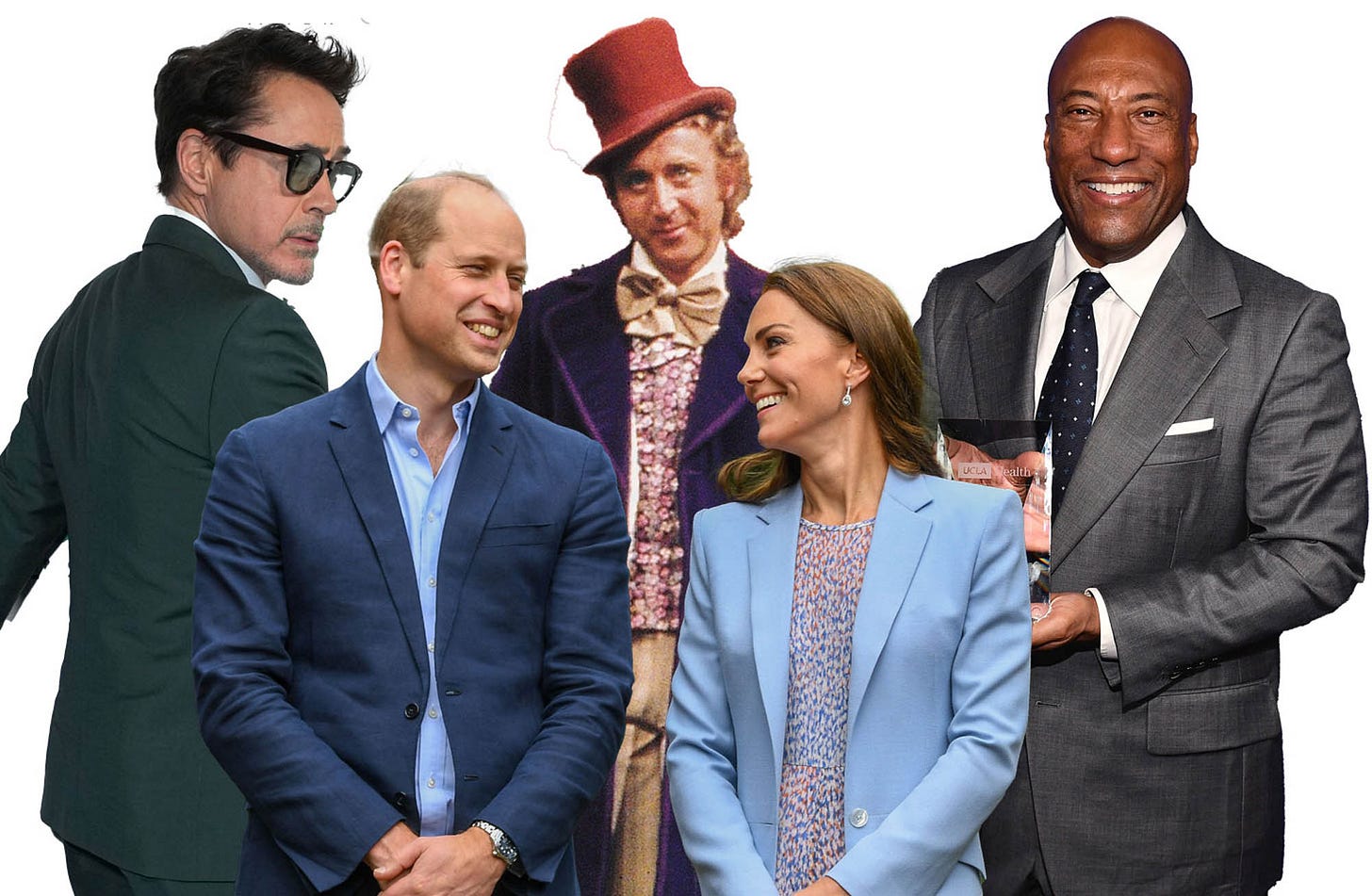
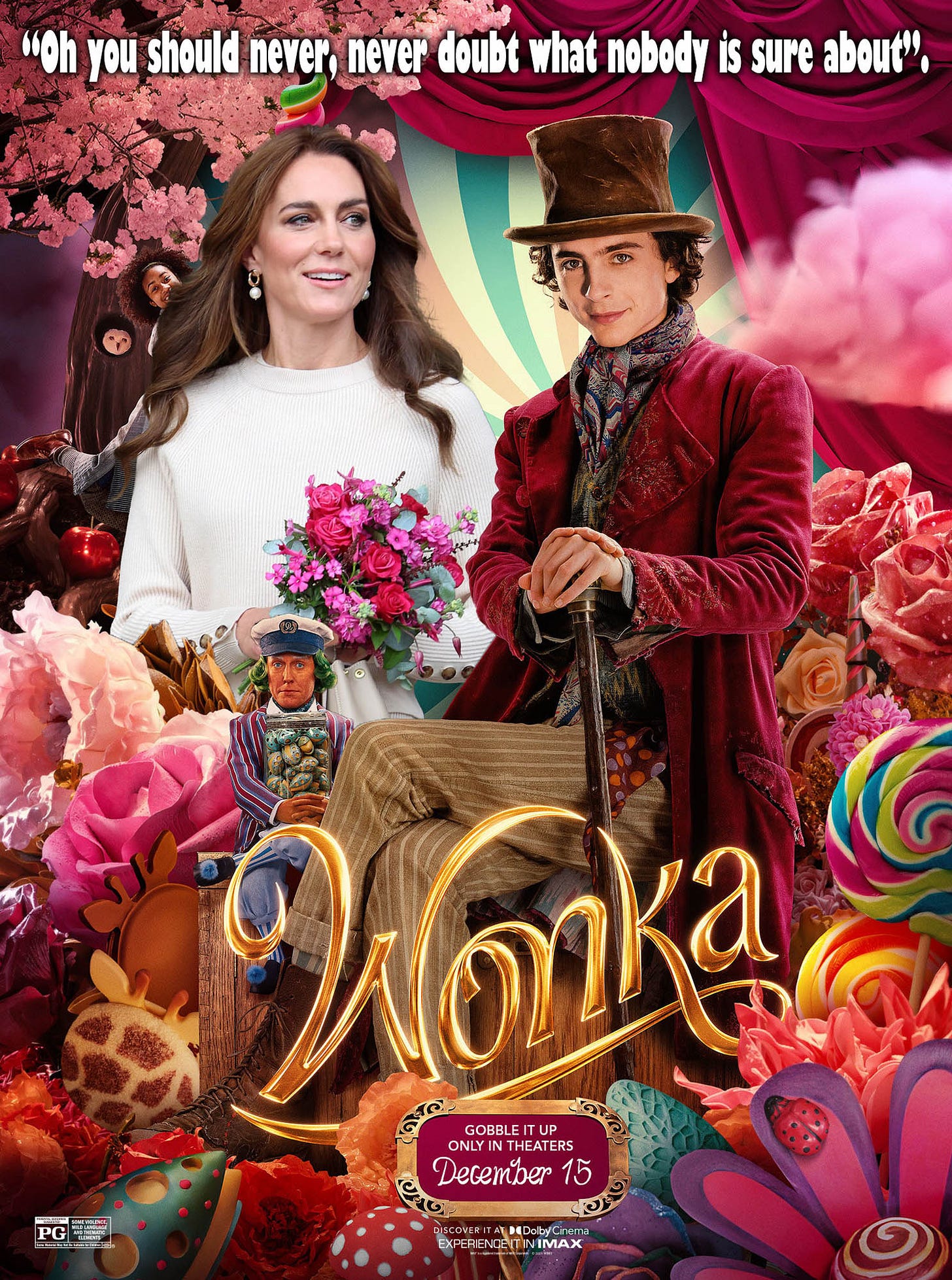
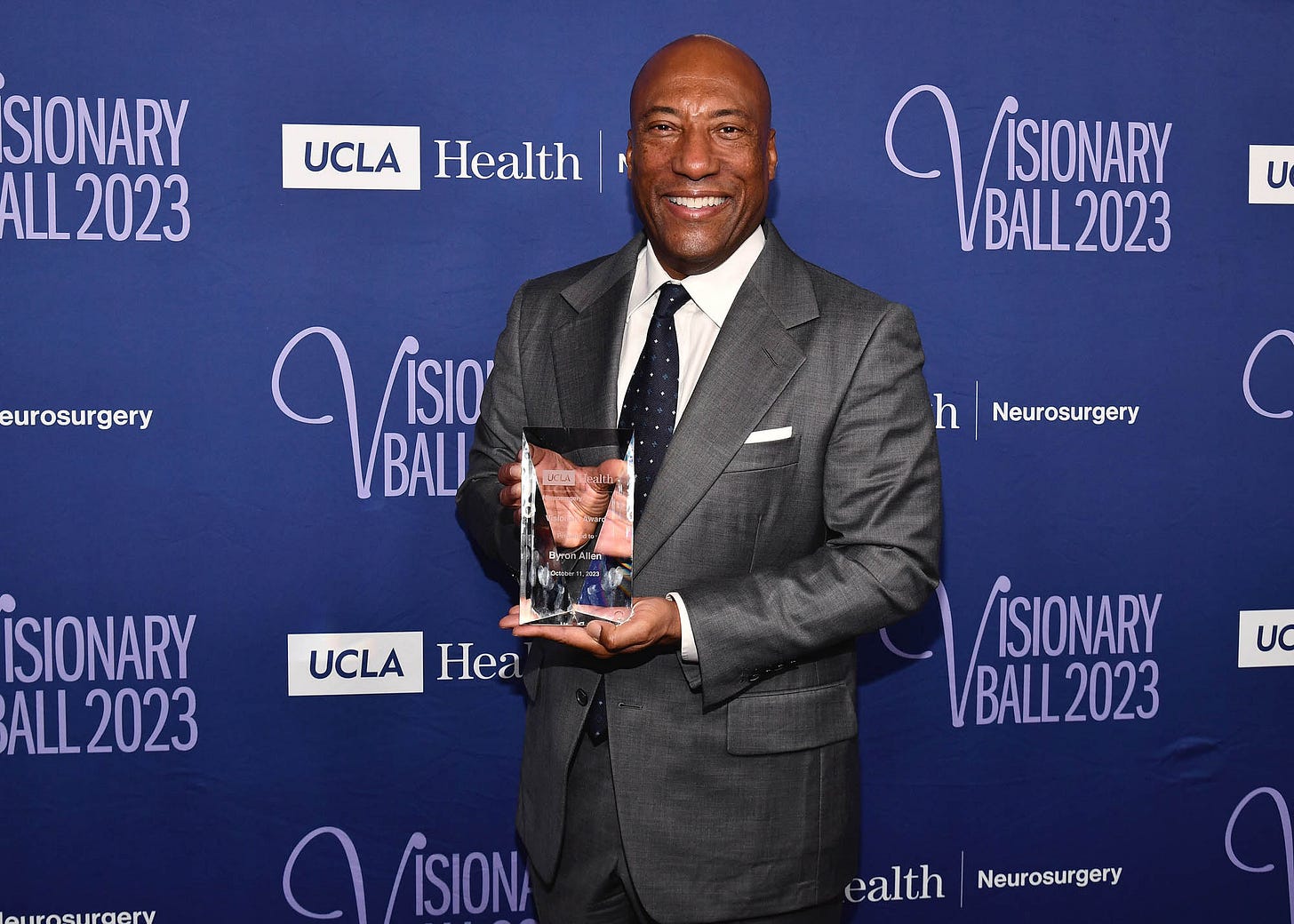
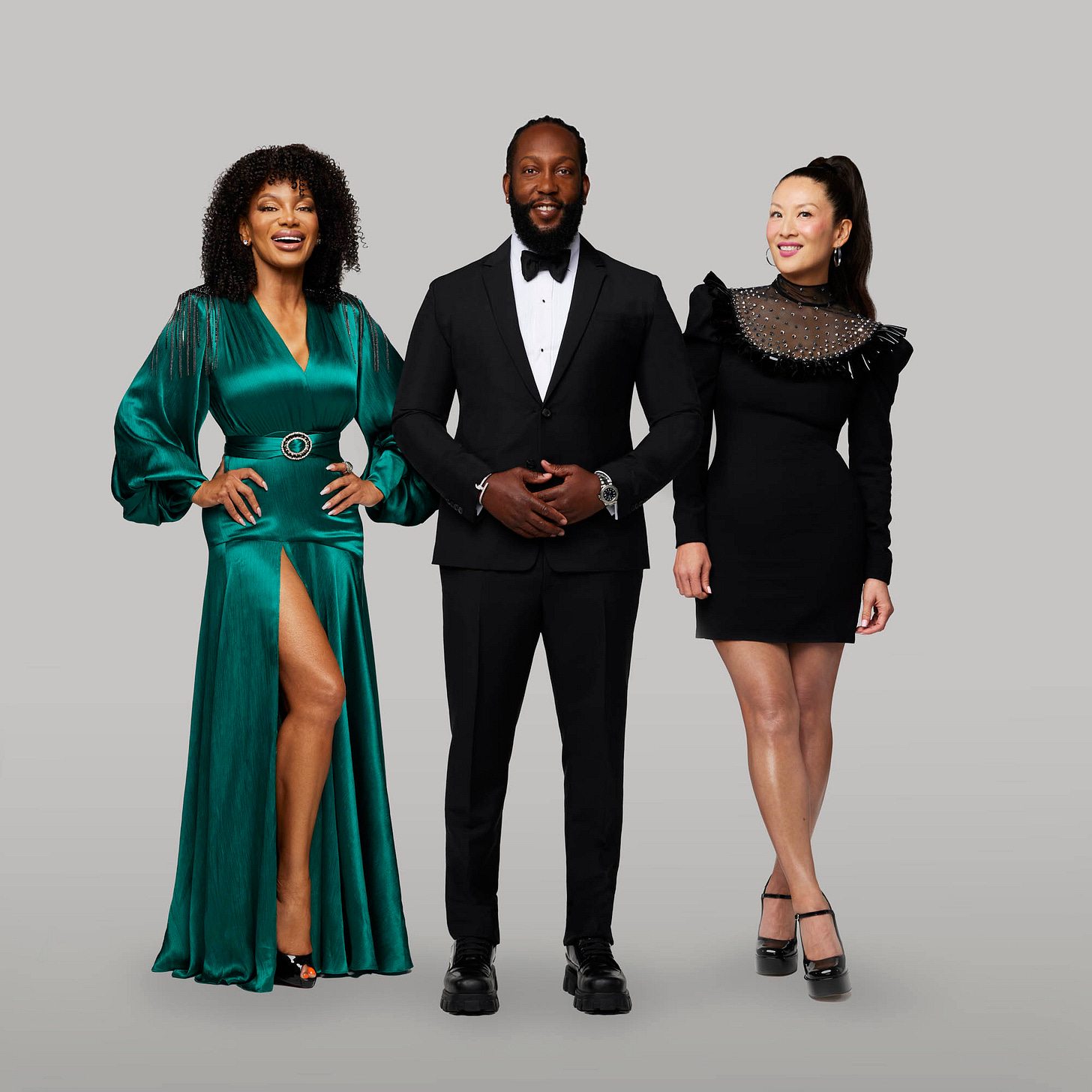
Just wanted to say how much I appreciate how intentional you all are being with your Royal Family coverage in the midst of all of this insanity, as well as your focus on the PR issues. If you're actually covering the BRF, I know it's got to be something good!
As someone who works in PR (albeit in a very different space), I still cannot get over how bad they are at this! None of this is new, but the fact that they are not willing to hire top-notch people, PAY THEM WELL, and take their advice speaks volumes about who they are are individuals and an institution. I don't know why I let this occupy my headspace, but it's like a never-ending car crash that I can't look away from.
Thanks for addressing my question, and while I totally understand the comment about being a “paper of record” (or not, as the case may be), I just wanted to say: I consider myself decently well-read and up to date on world & cultural news, but as much as I love the NYT and Al Jazeera, I haven’t read them everyday of my life for the last 15+ years. It is definitely the LG team’s voice I hear in my head and the place that has formed some of my most deep-seated values - so don’t underestimate your impact!